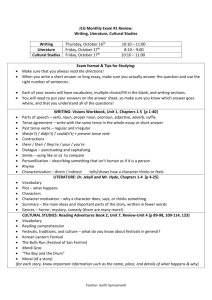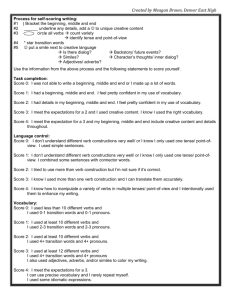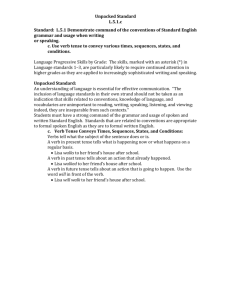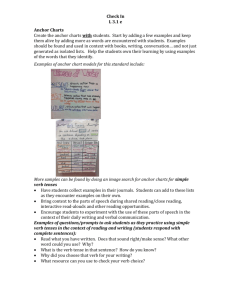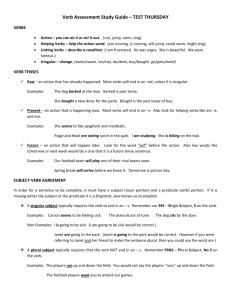Verb structure
advertisement
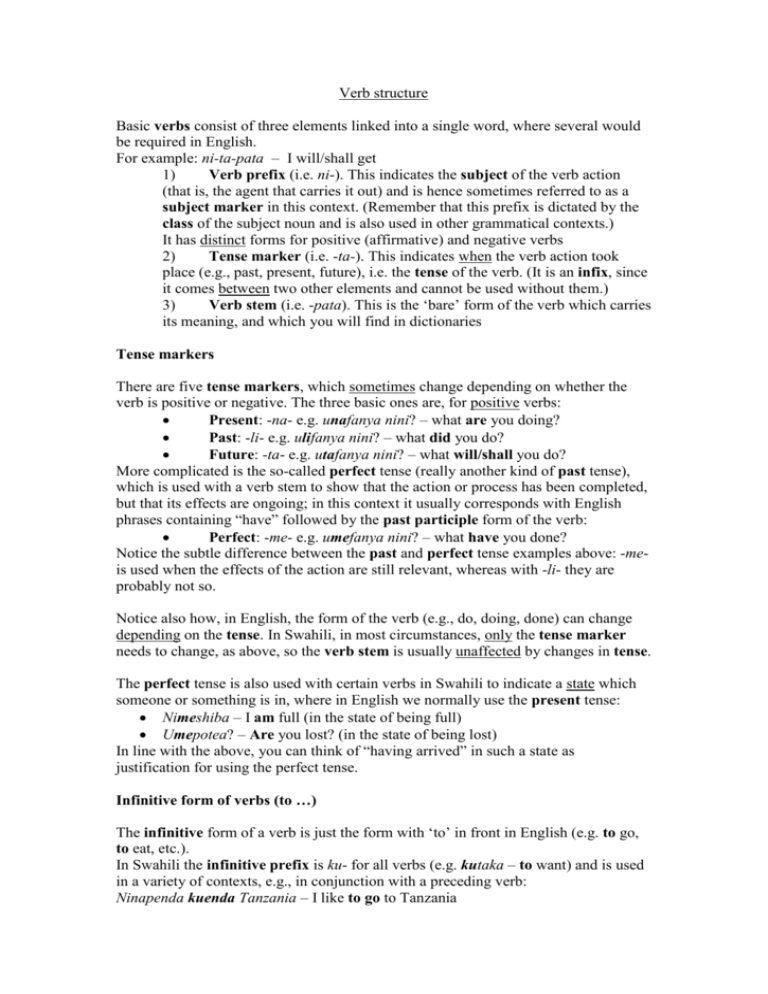
Verb structure Basic verbs consist of three elements linked into a single word, where several would be required in English. For example: ni-ta-pata – I will/shall get 1) Verb prefix (i.e. ni-). This indicates the subject of the verb action (that is, the agent that carries it out) and is hence sometimes referred to as a subject marker in this context. (Remember that this prefix is dictated by the class of the subject noun and is also used in other grammatical contexts.) It has distinct forms for positive (affirmative) and negative verbs 2) Tense marker (i.e. -ta-). This indicates when the verb action took place (e.g., past, present, future), i.e. the tense of the verb. (It is an infix, since it comes between two other elements and cannot be used without them.) 3) Verb stem (i.e. -pata). This is the ‘bare’ form of the verb which carries its meaning, and which you will find in dictionaries Tense markers There are five tense markers, which sometimes change depending on whether the verb is positive or negative. The three basic ones are, for positive verbs: Present: -na- e.g. unafanya nini? – what are you doing? Past: -li- e.g. ulifanya nini? – what did you do? Future: -ta- e.g. utafanya nini? – what will/shall you do? More complicated is the so-called perfect tense (really another kind of past tense), which is used with a verb stem to show that the action or process has been completed, but that its effects are ongoing; in this context it usually corresponds with English phrases containing “have” followed by the past participle form of the verb: Perfect: -me- e.g. umefanya nini? – what have you done? Notice the subtle difference between the past and perfect tense examples above: -meis used when the effects of the action are still relevant, whereas with -li- they are probably not so. Notice also how, in English, the form of the verb (e.g., do, doing, done) can change depending on the tense. In Swahili, in most circumstances, only the tense marker needs to change, as above, so the verb stem is usually unaffected by changes in tense. The perfect tense is also used with certain verbs in Swahili to indicate a state which someone or something is in, where in English we normally use the present tense: Nimeshiba – I am full (in the state of being full) Umepotea? – Are you lost? (in the state of being lost) In line with the above, you can think of “having arrived” in such a state as justification for using the perfect tense. Infinitive form of verbs (to …) The infinitive form of a verb is just the form with ‘to’ in front in English (e.g. to go, to eat, etc.). In Swahili the infinitive prefix is ku- for all verbs (e.g. kutaka – to want) and is used in a variety of contexts, e.g., in conjunction with a preceding verb: Ninapenda kuenda Tanzania – I like to go to Tanzania Watajaribu kupata kazi – They will try to get work Note how ‘to go’ and ‘to get’ could also have been translated as ‘going’ and ‘getting’ in the above examples, so these (present participles) are alternative interpretations of the infinitive, in many contexts. Since the infinitive prefix is the same for all verbs, you usually learn verbs in their stem form, without the ku- (i.e., how they will be found in the Swahili end of dictionaries). An exception is verb stems which have only one syllable (e.g., -la – eat), which retain the ku- prefix in many circumstances, including in verbs using all the tense markers above (i.e., in the positive): Ninakula ugali – I am eating ugali (not ninala!) Nilikula ugali – I ate ugali (not nilila) Nitakula ugali – I shall eat ugali (not nitala) Nimekula ugali – I have eaten ugali (i.e., recently, and so maybe, also, nimeshiba!) [Retention of the ku- for these verbs is entirely dictated by the rules about stress/emphasis in Swahili. While the penultimate syllable in any Swahili word always takes the main stress, certain syllables (including the tense markers -na-, -li-, -ta- and -me-) are not permitted to take stress, so ku does so instead.] N.B. Beware verbs where the stem also begins with ku, e.g. kukutana – to meet with (stem -kutana)


